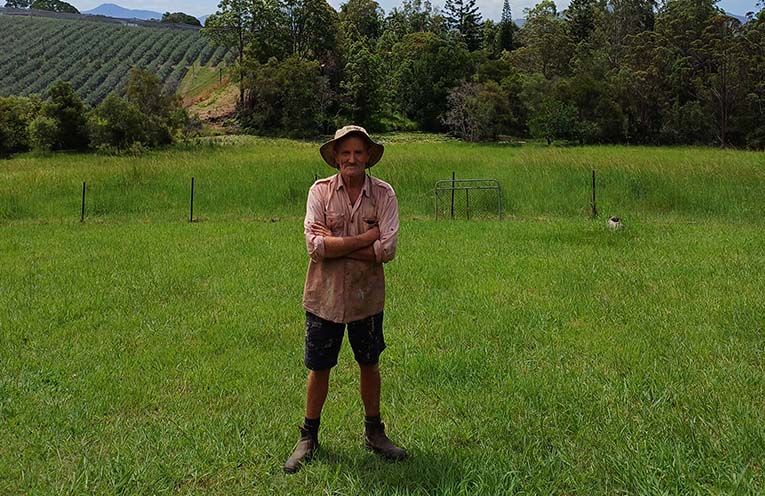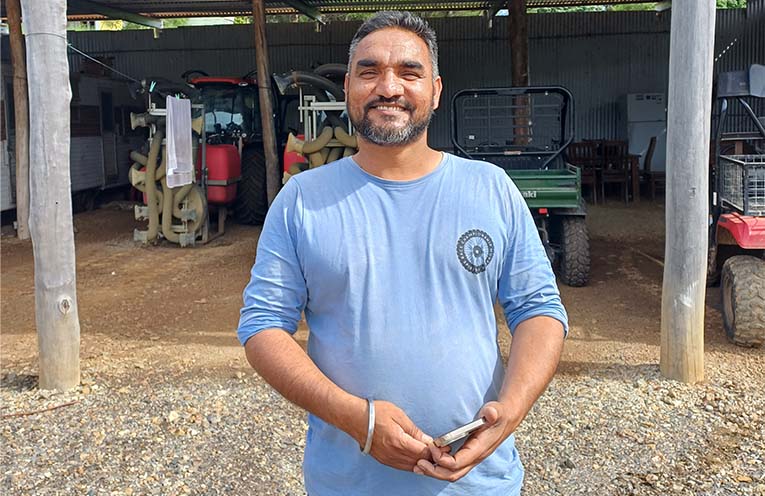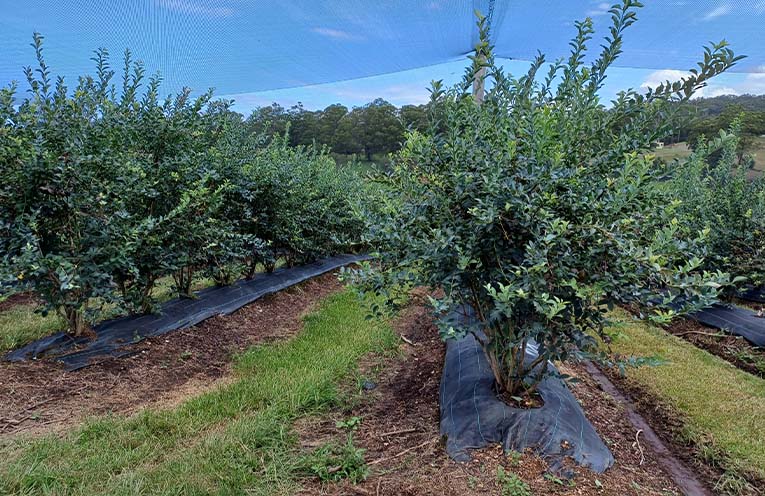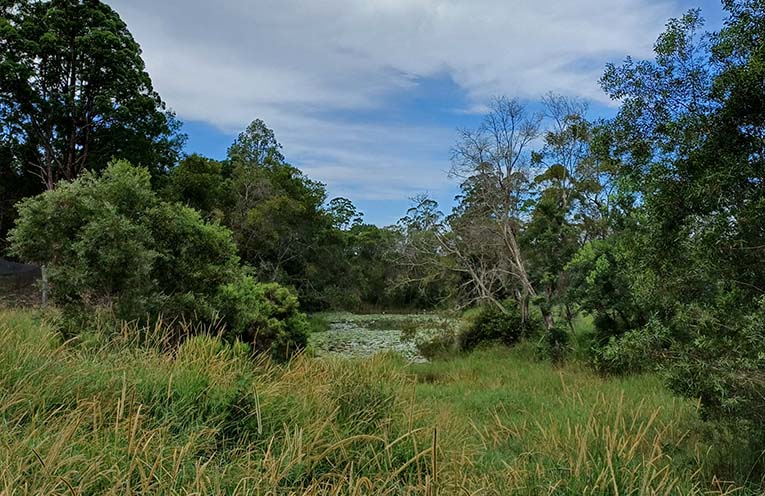
WATER is a source of conflict for many in the Nambucca Valley, where farmers of all denominations rely on this life-giving asset.
For others it represents the beauty of nature and the health of the local ecology.
 Advertise with News of The Area today.
Advertise with News of The Area today.It’s worth it for your business.
Message us.
Phone us – (02) 4981 8882.
Email us – media@newsofthearea.com.au
For one Nambucca Valley resident, David Martin of Congarinni North, when local blueberry growers decided to purchase the property directly behind his, he found himself embroiled in a neighbour dispute which he believes is unable to be resolved without legal intervention.
Since 2017, blueberry growers had held the property adjacent to his.
In the beginning, things were relatively amicable between the neighbours.
Mr Martin did maintenance work such as landscaping and mowing for the growers.
“At first I sat on the fence and didn’t know what to think when they started to farm,” he said.
“Later I realised I would have trouble if I ever subdivided and tried to sell that part of my property.
“I mean, who wants to live next to a blueberry farm?” he asked rhetorically.
The situation really disintegrated when in 2023 the blueberry farmers’ dam collapsed and they began to look for short-term water solutions for the farm.
“Last year, the Nambucca Valley was really dry,” Mr Martin said.
“They (the blueberry farmers) had approached the neighbour behind me about buying his land,” he said.
Mr Martin and this neighbour shared a dam that was just a few metres away from the near-empty dam used for blueberry irrigation.
“They (the blueberry farmers) started to come around every few days and pester me for the water.
“They wanted to pump the dam dry and knew I used it too.”
In the end, Mr Martin says he came home to find the growers had hooked up a pipe and were pumping out of the dam despite not yet gaining his permission.
The neighbours quarrelled and the rest of that discussion is now a matter for the courts.
“I called NRAR and they came out to inspect how much water was being used,” said Mr Martin.
NRAR is the NSW Natural Resources Asset Regulator, an independent law enforcement agency set up in 2017 to enforce compliance with NSW water laws.
If people suspect someone is breaking current water laws, NRAR is the enforcing body to whom this can be reported.
According to NSW water laws, in 2024 farmers are only entitled to use ten percent of the runoff their property generates for activities such as irrigation of crops unless they possess an irrigation licence.
“Blueberry farming on the industrial scale we see lately in the Nambucca Valley is a very water intensive practice,” said Raewyn Macky of the Nambucca Environment Network, a community group set up to tackle the problems created by the introduction of intensive-style farming in the Nambucca Valley.
“To permanently irrigate as in intensive plant agriculture, the Department of Primary Industries estimates that three to five megalitres per year per hectare is needed,” she told NOTA.
“This is a huge increase on the kinds of farming we have usually been seeing in the Nambucca Valley.
“The minimum economical berry farm size is four hectares.”
Mr Barjinder Singh, a resident of Coffs Harbour and one of the owners of the Smith’s Lane blueberry farm, disputes these figures.
“We have plants that we harvest in summer and plants that we harvest in winter.
“After we prune the winter crop, we don’t water it for six months, not one drop.
“The same will happen for the summer crop.
“We won’t water it for six months.”
Mr Singh showed NOTA the small drip irrigation pipes supplying each plant.
“This is a very small hole and it only gives one litre in one hour,” he said.
According to Mr Singh, his property has never run out of water before in the past six years and the only reason he needed some so desperately last year was that the large spring-fed dam he had been using failed and needed to be drained for repair.
“I don’t hate my neighbour.
“I don’t hate anyone.
“This is a community and community is very important to us in the Sikh religion.”
Mr Singh disputes Mr Martin’s version of events, saying that he had received permission from the other owner of the dam and had, at the time, entered into a long contract to purchase this neighbour’s property.
“We got Bryan’s (the previous owner) permission but David wouldn’t get back to us for more than a month,” he said.
“We only wanted to use a third of the water and in the end we only pumped for one day, maybe four hours.”
He and his business partner now own the next-door property which owns part of the dam, but he insists that it was only purchased to be used for worker accommodation.
Last week, NRAR responded to Mr Martin’s complaint about water usage on the farm and investigated the Smith’s Lane property.
“NRAR are in the early stages of investigating three cases in the Nambucca Valley Council area involving alleged unlawful water take by blueberry farmers,” an NRAR spokesperson told NOTA.
“The three sites have been inspected and investigations are ongoing.”
NRAR commits to completing investigations within a three-year timeframe but says most take less time than this to complete.
Fines of up to $1.1 million for individuals or $5.005 million for corporations can be imposed depending on the severity of the offences and the circumstances of each case.
In the meantime, all dams are full and the blueberry farm is flourishing.
“We have nothing to hide because we are not doing anything wrong,” said Mr Singh.
“We have been here six years and it is our community so we don’t want to do anything to hurt it.”
By Ned COWIE


